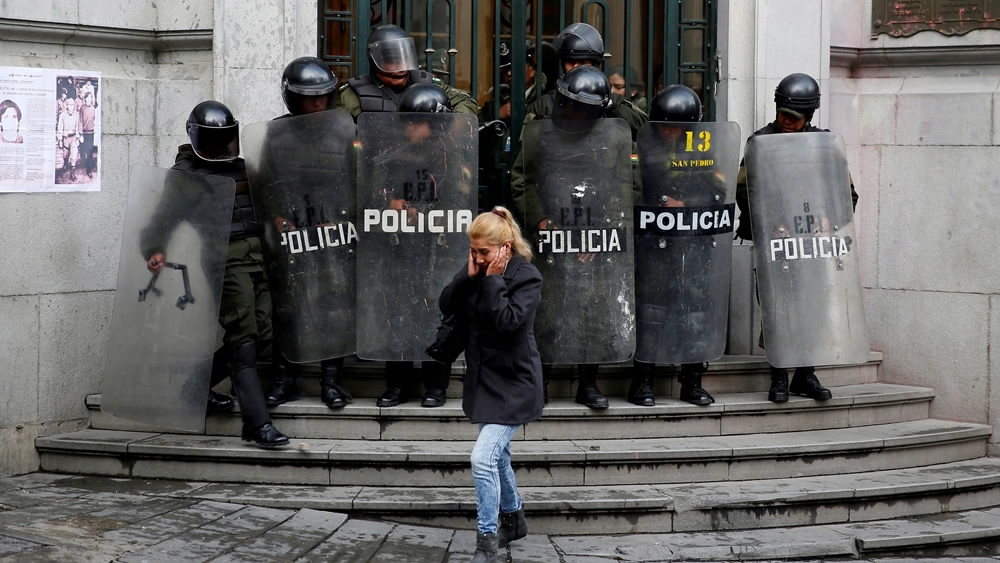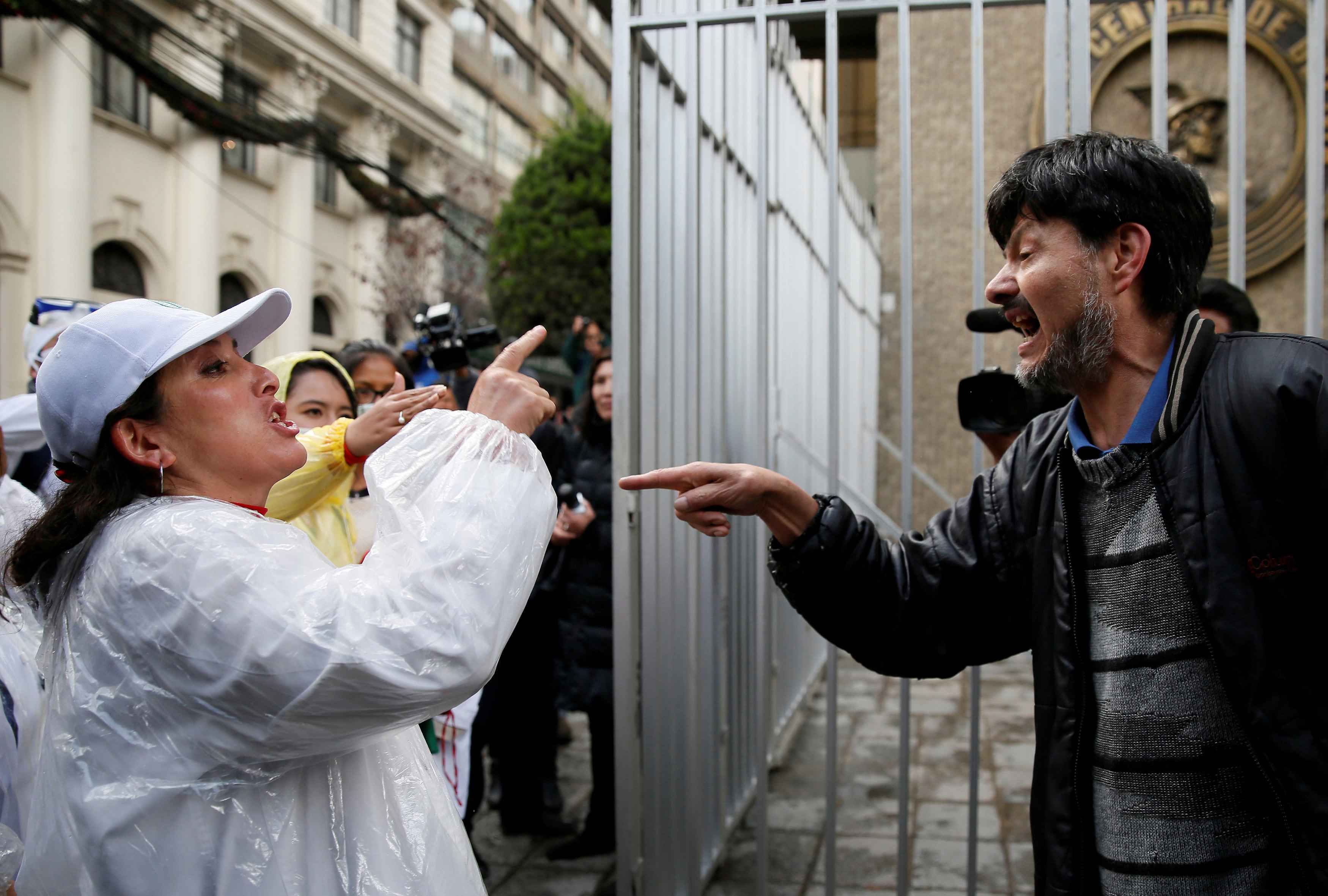
Politics
15:31, 09-Jan-2018
Clashes break out in Bolivia as tensions flare
CGTN

A new round of clashes broke out as the tensions had escalated in Bolivia since Monday against the leftist government of Evo Morales that is seeking stricter penalties against criminal truckdrivers and a harsher medical malpractice legal code.
"The interests that are leading the medical strike are not from within; they are allied with the opposition who are looking to push forward an anti-democracy conspiracy," said President Morales.
Morales has led the landlocked nation for 11 years. In September, Morales's Movement to Socialism party asked the courts to rescind legal limits barring elected authorities from seeking reelection indefinitely.

A pedestrian (R) argues with a demonstrator during a rally protest against Bolivia's government new health care policies in La Paz, Bolivia, January 8, 2018. /Reuters Photo
A pedestrian (R) argues with a demonstrator during a rally protest against Bolivia's government new health care policies in La Paz, Bolivia, January 8, 2018. /Reuters Photo
It came after Morales had previously accepted the results of a referendum in 2016 when 51 percent of voters rejected his proposal to end term limits. He later reversed course, saying that while he was willing to leave office, his supporters were pushing for him to stay.
La Paz is saying it will guarantee international passage of heavy transport after a seven-week-old strike by truckers up in arms over a new penal code they say effectively criminalizes their work. The striking truckers are organizing in response to a new penal code that places the legal burden on truckers in the event of a dispute.
The activism by the truckers is also taking place as Bolivian doctors are well into their second month of protests and hunger strikes over a new law that imposes heavier sanctions on doctors found guilty of causing physical harm to their patients.
Speaking directly about the doctors' strike, Morales said he will apply all the available constitutional actions to reestablish the country's health system.
17393km
Source(s): Reuters

SITEMAP
Copyright © 2018 CGTN. Beijing ICP prepared NO.16065310-3
Copyright © 2018 CGTN. Beijing ICP prepared NO.16065310-3